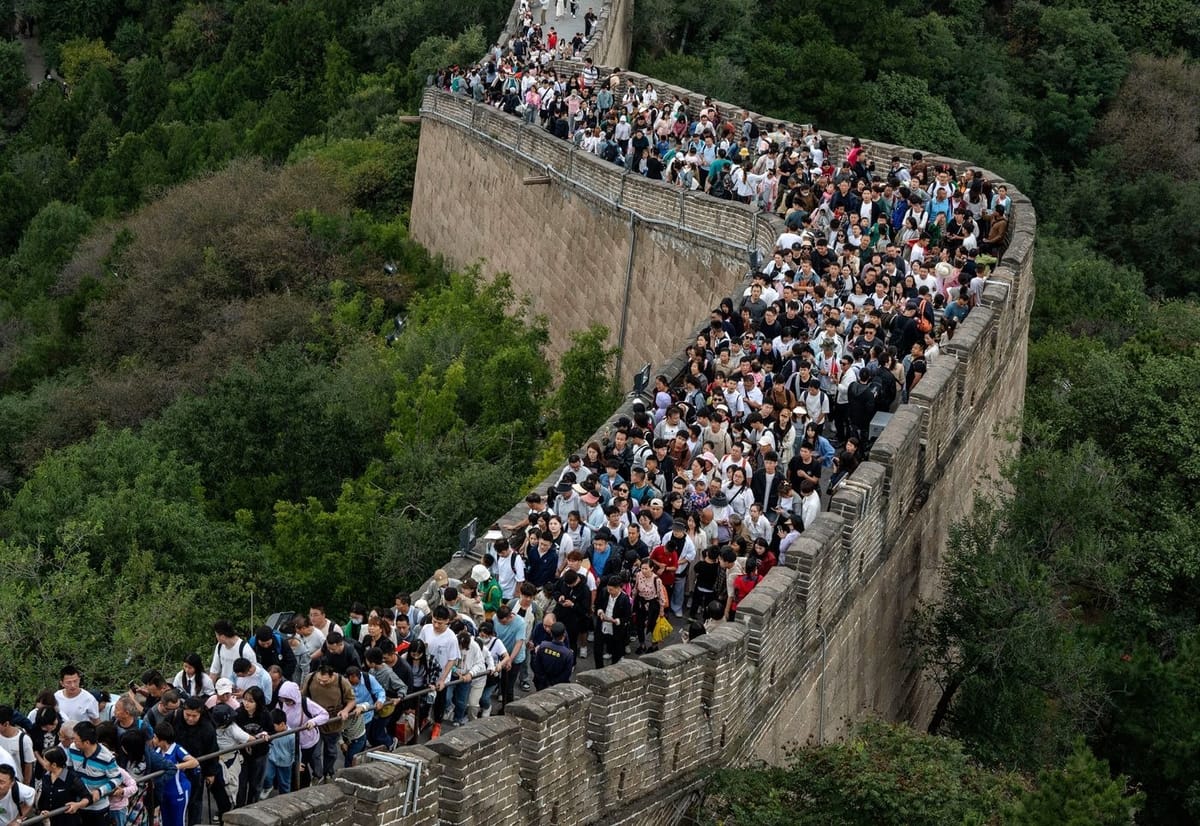Travellers eager to make up for lost time during China’s extended ‘Golden Week’.

By Gunda Pavilonytė, BA Chinese
This year’s ‘Golden Week’, centred around China’s National Day, coincides with the Mid-Autumn festival resulting in a 10-day long holiday from September 29th to October 8th.
This is one of the first breaks since the complete lifting of the COVID-19 lockdown restrictions by the Chinese government, allowing unrestricted travel. A total of 826 million outbound and inbound journeys were made during the longer-than-usual holiday break, equivalent to 85.1% of the average number of trips made in the same period in 2019. Although signalling a gradual rebound these figures are significantly lower than the official state predictions of 896 million trips and 782.5 billion yuan in domestic tourism revenue.
Last year, since China’s international borders were closed, its citizens opted for more remote travel destinations, sparking a domestic tourism boom. Among these is a fourth-year undergraduate student, Malika, from Kazakhstan: ‘Most places in the cities were closed, you had to get tested in order to go anywhere, it was very inconvenient, so me and my friends went around smaller villages and nature destinations instead since there was nothing to do in the cities and less likely of getting infected.’
“citizens are now eager to embark on ‘revenge travelling’, looking for ways to see as many destinations as possible on a tight yet cheap schedule.”
Following the extended strict COVID-19 shutdown, citizens are now eager to embark on ‘revenge travelling’, looking for ways to see as many destinations as possible on a tight yet cheap schedule.
Although the rebound from the COVID-19 lockdown has been relatively strong, the Pandemic has caused some longer-lasting economic disruptions. Rising unemployment rates, a property market crisis and weaker local currency have all caused the travel industry to go through a ‘transitory period’, as consumers are looking for more budget-friendly destinations, predicting the trend for the upcoming Lunar New Year holiday season.
‘[During the Pandemic] many tourist places have become very deserted since China is so big many chose to stay here during the holidays, take the opportunity to visit their families and participate in festivities and events after four years of lockdown. You can sense people’s enthusiasm to travel again!’ says Mika, a postgraduate student from Beijing.
Regarding cross-border journeys, those fortunate enough to afford it, are opting for cheaper leisure destinations abroad. This is further accelerated by the Temporary Visa exemption by countries such as Thailand and the United Arab Emirates (UAE), aimed to revive the country’s damaged economy.
This new strategy is said to set the tone for other upcoming holiday periods, as the competition to attract Chinese tourists amongst countries in the Southeast Asian region intensifies. Rebound international travel by Chinese tourists would greatly favour many tourist-dependent businesses, as spending by mainland Chinese tourists before the Pandemic concluded more than any other nationals when abroad.
Photo caption: Tourists on the Great Wall of China [Credit: Kevin Frayer/ Getty Images]



